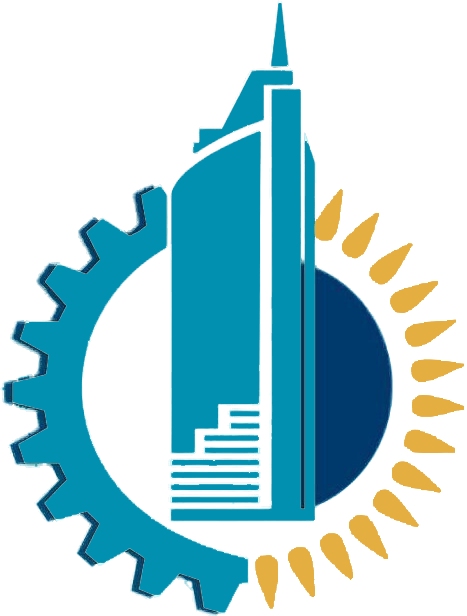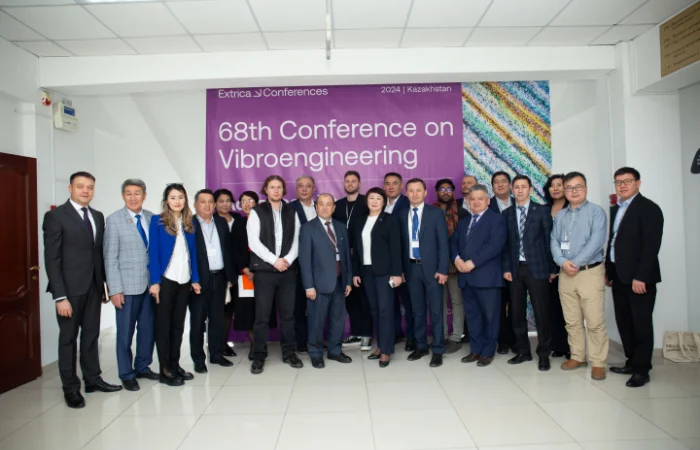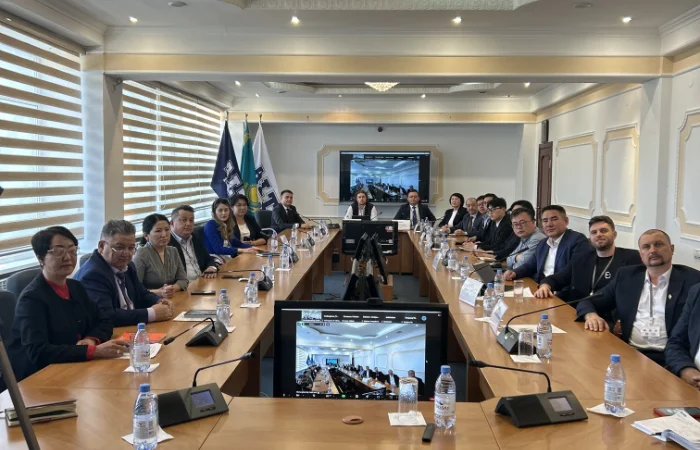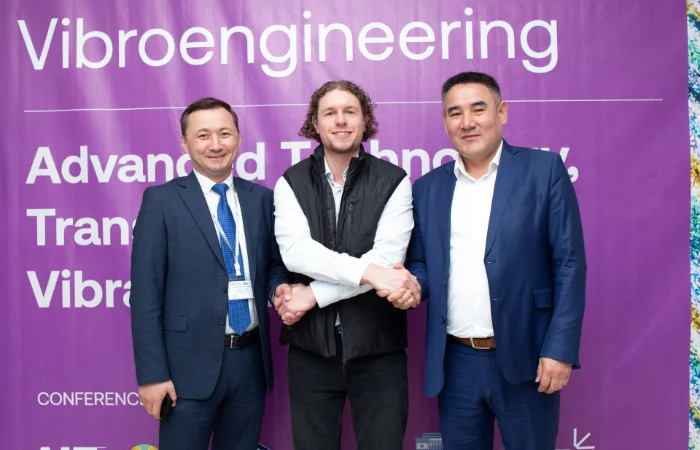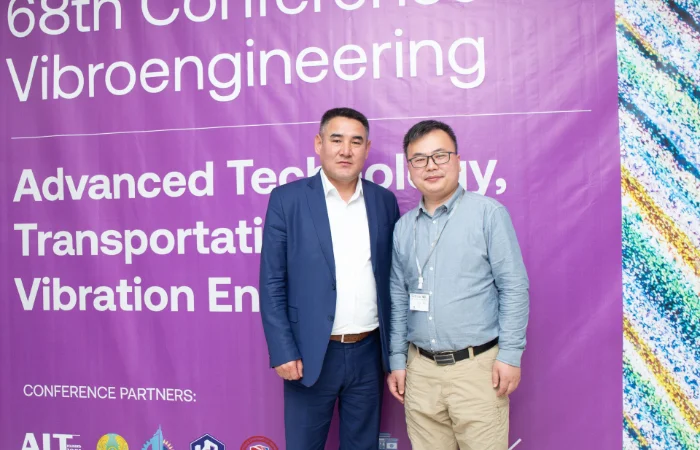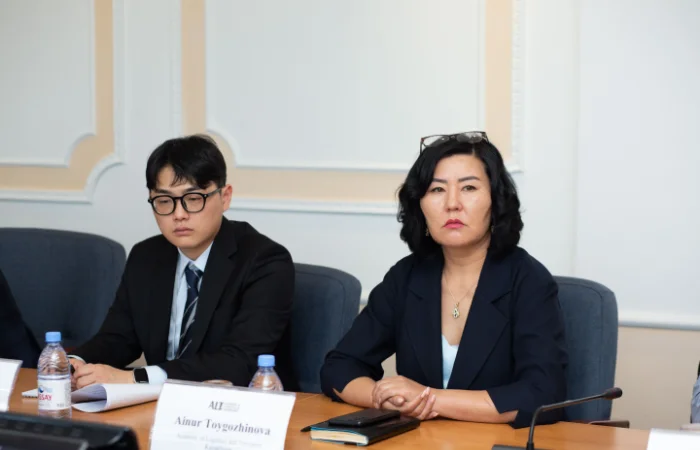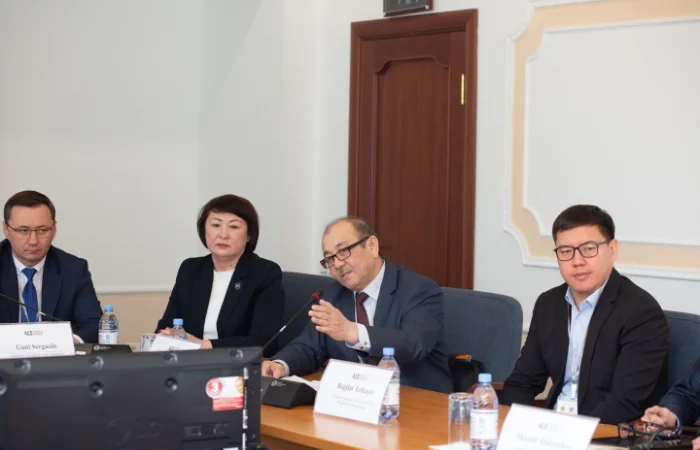68th International Conference on VIBROENGINEERING is an integral part of Vibroengineering Series Conferences and will be held in Almaty, Kazakhstan.
The conference provides a global platform for researchers, scientists, engineers and practitioners to showcase their latest research results, stimulate debate, generate fresh concepts and foster collaboration. Vibroengineering Procedia is included in major scientific databases such as Scopus, EI Compendex, Gale Cengage, Google Scholar and EBSCO. Vibration Engineering conferences include various cutting-edge technical presentations, lively discussions, and worldwide participation from renowned experts and scientists. The conference provides an opportunity to share recent advances in research, exchange ideas on cutting-edge engineering technologies, and take advantage of extensive networking opportunities.
Keynote speakers




Organizing Comittee









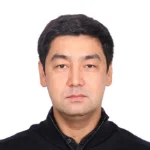





Fees
For those participating live: Publication in Vibroengineering Procedia, Conference materials, lunch and coffee breaks.
For those participating online: Participation in online conference event, publication in Vibroengineering Procedia and certificate.
Conference Program
Gallery
Sponsors and Partners
Conference in Almaty, Kazakhstan was organized by Extrica with the partnership of Academy of Logistics and Transport (ALT).

Academy of Logistics and Transport (ALT) is a transportation engineering university in Almaty, Kazakhstan. ALT is a leading research university in Central Asia in the fields of transport, Advanced transportation information and Rail Traffic Management and the best university of Central Asia in Transport Engineering and Logistics.
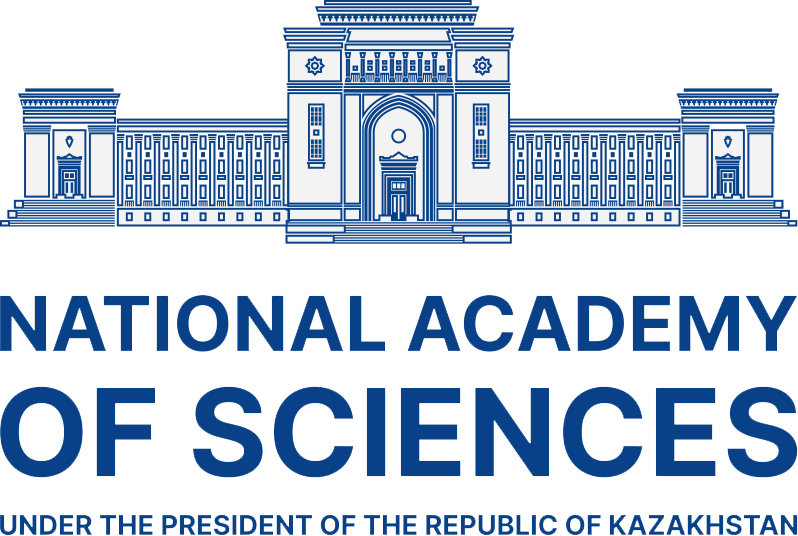
The National Academy of Sciences of the Republic of Kazakhstan (NAS RK) is a republican private association comprising the most advanced scientists in Kazakhstan, including full members (academicians) and corresponding members of the Academy. NAS RK currently boasts a membership of 228 individuals, with 155 academicians and 73 corresponding members. Additionally, it encompasses 17 foreign and 110 honorary members, along with 41 society members and 23 professors of NAS RK.
Established on June 1, 1946, the Academy of Sciences of the KazSSR swiftly became the primary scientific headquarters of the republic, serving as the coordinator for scientific research activities in Kazakhstan. Since its inception, the National Academy of Sciences of the Republic has been actively engaged in extensive research focused on the development of the region's abundant natural resources. It has made a substantial contribution to advancing the productive forces of the country, addressing crucial economic, social, and spiritual development challenges within Kazakhstani society.
On February 12, 1999, the National Academy of Sciences of the Republic of Kazakhstan was formally established as a republican state institution through Presidential Decree No. 34 of the Republic of Kazakhstan.
In 2022, the National Academy of Sciences regained its status as a state institution. President Kasym-Zhomart Tokayev made this announcement on June 1, 2022, during the National Academy of Sciences commemorative session held in honour of its 75th anniversary. He emphasized the need for the Academy to become a prominent centre of scientific thought and an authoritative institution engaged in expert activities. Therefore, enhancing the role of the Academy was deemed crucial, leading to its reinstatement as a state institution. By Decree No. 1003 of the Government of the Republic of Kazakhstan, issued on December 14, 2022, a non-commercial joint-stock company named "The National Academy of Sciences of the Republic of Kazakhstan" was established. The state holds a hundred per cent participation in the authorized capital of this company.
Subsequently, on March 27, 2023, the President of the Republic of Kazakhstan issued Decree No. 152, which addressed specific issues related to the National Academy of Sciences. As per this decree, the non-commercial joint-stock company, previously known as the ‘The National Academy of Sciences of the Republic of Kazakhstan’ was renamed to "The National Academy of Sciences of Kazakhstan under the President of the Republic of Kazakhstan."
By Decree of the Government of the Republic of Kazakhstan dated April 11, 2023 No. 281, the Government of the Republic of Kazakhstan decided to rename the non-profit joint-stock company ‘National Academy of Sciences of the Republic of Kazakhstan’ into the non-profit joint-stock company ‘National Academy Sciences of the Republic of Kazakhstan’ under the President of the Republic of Kazakhstan.

The National Engineering Academy of the Republic of Kazakhstan (NEA RK) is a large and reputable association that coordinates and develops scientific and engineering activities in Kazakhstan.
The foundation of the Academy's high potential lies in its membership, which includes leading scientists and engineers of the country, production specialists, government officials, members of the Parliament of the Republic of Kazakhstan, leaders of central and local government bodies, higher education institutions, sectoral research institutes, industrial associations, and entities from both the public and private sectors of the economy. As initiative members, the Academy encompasses approximately 150 research institutes, universities, joint-stock companies, corporations, industrial enterprises, and organizations.
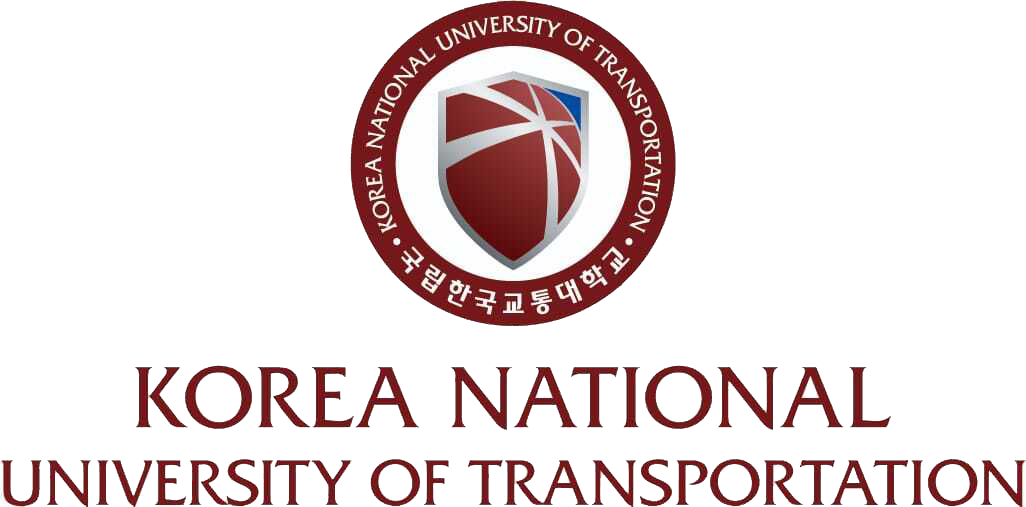
Korea National University of Transportation (KNUT) strives to foster creative leaders in their respective fields through its 400 faculty members, high-quality education system, and diverse majors. Comprised of the Chungju Campus, which focuses on smart automobiles, aviation, engineering, humanities, and social sciences; the Jeungpyeong Campus, which focuses on health and life sciences; and the Uiwang Campus, which focuses on the railroads system, KNUT focuses on fostering future talents with international sensibilities through field-oriented practical education.
KNUT, which is leading flexible and resilient changes in line with the era of the Fourth Industrial Revolution, has set 'Connect the World' as its vision and has a long-term goal to develop into a university that connects the present and the future, knowledge and practice, and the local and the global. With the university's ideological attitude and efforts to cultivate advanced human resources in line with its vision, it has achieved remarkable achievements such as being selected as a leading university for industry-academia-government cooperation (LINC 3.0), selected as a support project for the second cycle of the university lifelong education system (LiFE2.0), selected as a project to cultivate innovative human resources for future automobiles, selected as a center university for regional innovation projects based on local government-university cooperation, selected as a national university development project, and selected as a support project for universities contributing to high school education. The National University of Transportation fosters future talents with creative intelligence required by the nation and society through a demand-oriented curriculum and strives to improve student-centered educational service satisfaction.
